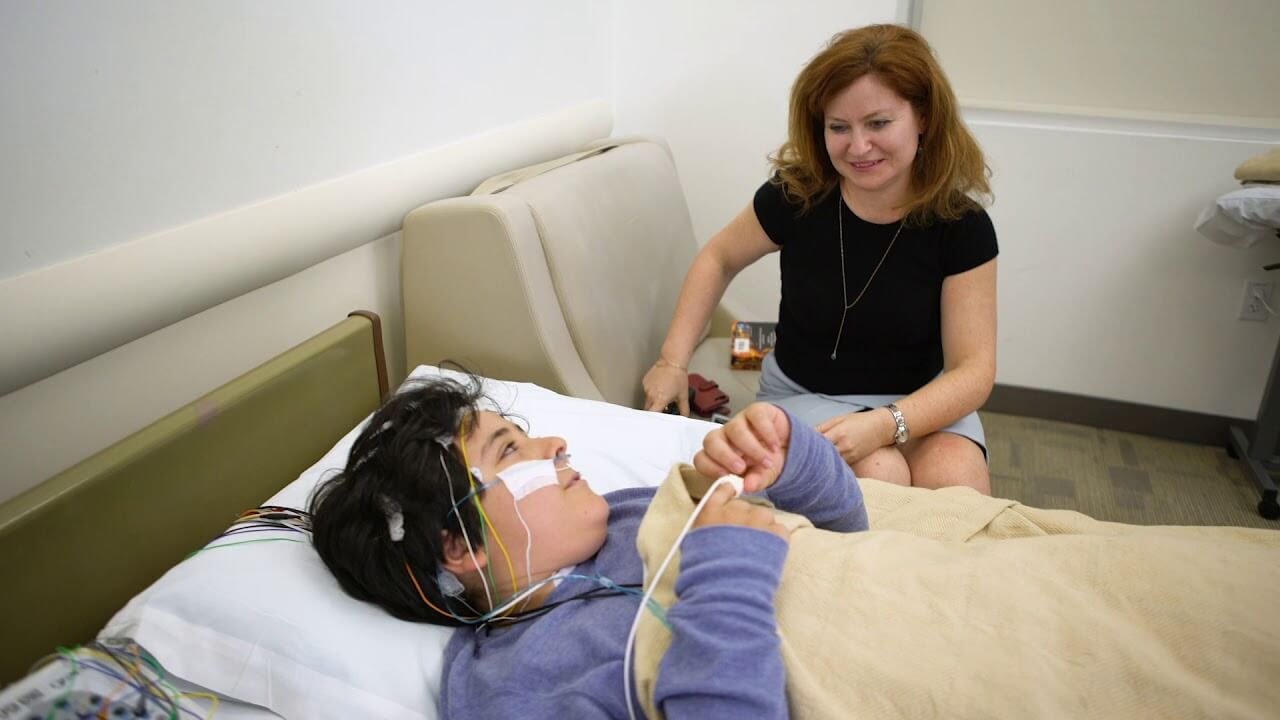Sleep is a vital component of our overall health and well-being. However, millions of people struggle with sleep disorders that can significantly affect their quality of life. Identifying and addressing these issues often requires professional testing. In this article, we will explore various aspects of sleep disorders, the importance of testing, and what you can expect from the testing process.
Understanding Sleep Disorders
Sleep disorders encompass a variety of conditions that disrupt normal sleep patterns. These disorders can lead to difficulties in falling asleep, staying asleep, or achieving restorative sleep. Understanding these conditions through sleep disorders test is essential for early detection and treatment. The importance of sleep cannot be overstated; it plays a crucial role in physical health, emotional well-being, and cognitive function. Chronic sleep deprivation can lead to serious health issues, including obesity, diabetes, cardiovascular diseases, and even mental health disorders like anxiety and depression. Therefore, recognizing and addressing sleep disorders is vital for maintaining overall health. Learn more does Medicare cover sleep apnea tests?
Types of Sleep Disorders
There are several types of sleep disorders, each with distinct characteristics:
- Insomnia: Difficulty falling or staying asleep.
- Sleep Apnea: Breathing interruptions during sleep.
- Narcolepsy: A condition characterized by excessive daytime sleepiness.
- Restless Legs Syndrome: A strong urge to move the legs, causing discomfort during rest.
- Parasomnias: Abnormal behaviors during sleep, such as sleepwalking or night terrors.
Understanding the specific type of sleep disorder you may be experiencing can guide treatment options and testing methods. For instance, insomnia can be classified into different types, such as acute or chronic, and can be triggered by various factors including stress, anxiety, or environmental changes. Sleep apnea, on the other hand, often requires specialized testing like a sleep study to diagnose the severity and type, which can include obstructive or central sleep apnea. Each disorder has its own set of potential treatments, ranging from lifestyle changes and cognitive behavioral therapy to medical interventions like CPAP machines or medications.
Common Symptoms of Sleep Disorders
Identifying symptoms is the first step towards getting help for sleep disorders. Common symptoms include:
- Difficulty concentrating during the day
- Frequent waking during the night
- Chronic snoring
- Extreme daytime fatigue
- Unusual behaviors during sleep
If you notice any of these symptoms, it may be time to consider a formal evaluation. Additionally, it is important to keep in mind that sleep disorders can often co-occur with other medical conditions, such as depression or anxiety, which can complicate diagnosis and treatment. Maintaining a sleep diary, where you track your sleep patterns, duration, and any disturbances, can be an invaluable tool for healthcare providers in determining the underlying issues. This proactive approach not only aids in identifying the disorder but also empowers individuals to take charge of their sleep health.
The Importance of Sleep Disorder Tests
Testing for sleep disorders is crucial for a variety of reasons. It not only helps to identify the disorder but also aids in recognizing any underlying conditions that may contribute to sleep difficulties.
Detecting Underlying Health Conditions
Some sleep disorders can indicate or exacerbate other health issues, such as obesity, heart disease, or diabetes. Through testing, healthcare providers can uncover these connections, allowing for a comprehensive treatment approach. For instance, conditions like sleep apnea can lead to increased blood pressure and cardiovascular strain, making it essential to diagnose and treat these disorders promptly. Furthermore, recognizing sleep disorders early can prevent the progression of related health issues, ensuring that patients maintain a healthier lifestyle and reduce the risk of chronic diseases.

Improving Quality of Life
Getting tested can lead to significant improvements in your quality of life. Effective treatment plans founded on accurate diagnoses can mitigate symptoms, enhance daily functioning, and improve emotional well-being. Individuals who undergo sleep disorder testing often report better concentration, increased energy levels, and a more positive mood. Additionally, addressing sleep issues can lead to improved relationships, as better sleep can reduce irritability and enhance interpersonal interactions. The ripple effect of improved sleep quality can be profound, impacting not just the individual but also their family and social circles.
Understanding Sleep Patterns
Another critical aspect of sleep disorder testing is the ability to analyze and understand individual sleep patterns. By utilizing tools such as polysomnography or home sleep tests, healthcare professionals can gather detailed data on sleep stages, duration, and disturbances. This information is invaluable, as it allows for tailored interventions that align with a person’s unique sleep architecture. For example, someone with insomnia may benefit from cognitive behavioral therapy for insomnia (CBT-I), while a person with restless leg syndrome might require different strategies to manage their symptoms effectively. Understanding these nuances can lead to more personalized care and better outcomes for those struggling with sleep-related issues.
Different Types of Sleep Disorder Tests
There are several testing options available for diagnosing sleep disorders, each tailored to assess specific conditions.
Polysomnography
Polysomnography (PSG) is a comprehensive sleep study that records various body functions during sleep, including brain activity, eye movement, heart rate, and breathing patterns. It is primarily conducted in sleep centers, allowing for constant monitoring by trained professionals.
This test is particularly effective for diagnosing complex conditions like sleep apnea or parasomnias. The data collected during a PSG can provide insights into sleep architecture, revealing how much time a patient spends in different sleep stages, such as REM and non-REM sleep. This detailed analysis helps healthcare providers tailor treatment plans that address the specific needs of the patient, ensuring a more personalized approach to managing their sleep disorder.
Multiple Sleep Latency Test
The Multiple Sleep Latency Test (MSLT) measures how quickly a person falls asleep in a quiet environment during the day. This test is often used to diagnose narcolepsy and provides valuable data about an individual’s sleep patterns.
As the test is conducted over multiple sessions, it helps in gauging sleepiness levels and identifying potential sleep disorders. Each session typically involves a series of naps scheduled at regular intervals, allowing clinicians to observe how quickly the individual transitions from wakefulness to sleep. The results can indicate not only the presence of narcolepsy but also the severity of the condition, which is crucial for determining appropriate interventions and lifestyle modifications.
Home Sleep Tests
Home sleep tests are more convenient alternatives that allow individuals to monitor their sleep in the comfort of their homes. These tests typically involve a smaller device that may record oxygen levels, heart rate, and breathing patterns.
While they are less comprehensive than in-lab studies, home sleep tests can effectively screen for conditions like obstructive sleep apnea. These tests often come with user-friendly instructions, enabling patients to set up the equipment themselves, which can alleviate some of the anxiety associated with traditional sleep studies. Furthermore, the results from home sleep tests can prompt further evaluation or treatment, making them an essential first step in the diagnostic process for many individuals who suspect they have a sleep disorder.
When to Consider Getting Tested for Sleep Disorders
Recognizing when it’s time to seek professional help is essential for effective treatment. There are specific indicators that suggest you may need a sleep disorder test.
Persistent Sleep Issues
If you experience persistent sleep problems, such as insomnia or consistent nighttime awakenings, it is an important signal that warrants attention. Chronic sleep issues can lead to further health complications if left untreated. For instance, prolonged insomnia can increase the risk of developing anxiety and depression, as well as exacerbate existing mental health conditions. Additionally, sleep disturbances can affect your immune system, making you more susceptible to illnesses. Therefore, addressing these issues early on can significantly improve your overall well-being.
Daytime Fatigue and Other Symptoms
Daytime fatigue, difficulty concentrating, and irritability can all be symptoms of sleep disorders. A consistent pattern of these symptoms can indicate a deeper issue that might require clinical assessment. It’s important to note that these symptoms can also affect your productivity and relationships, leading to a cycle of stress and further sleep disruption. Moreover, conditions like sleep apnea can cause significant drops in oxygen levels during the night, leading to even more severe daytime fatigue and cognitive impairment. Recognizing the interplay between sleep quality and daily functioning is crucial for understanding the importance of seeking help.
Seeking testing in these scenarios can pave the way for better sleep and overall health. By undergoing a sleep study or consultation with a sleep specialist, you can gain insights into your sleep patterns and identify any underlying disorders. This proactive approach not only helps in diagnosing conditions like restless leg syndrome or narcolepsy but also opens the door to tailored treatment options, whether they involve lifestyle changes, cognitive behavioral therapy, or medical interventions. Understanding the root cause of your sleep issues can empower you to take control of your health and enhance your quality of life.

The Process of Sleep Disorder Testing
Understanding the testing process can alleviate apprehensions and facilitate a smoother experience.
What to Expect During a Sleep Study
During a sleep study, you will typically spend the night in a sleep center. The environment is designed to mimic bedroom conditions for comfort. Before sleeping, technicians will place electrodes on your scalp, face, chest, and limbs to monitor various metrics.
While the setup may feel unusual at first, the entire process is designed to ensure safety and accuracy, enabling accurate diagnosis. Throughout the night, you will be observed not only through the electrodes but also via video monitoring, allowing technicians to capture any movements or behaviors that may occur during sleep. This comprehensive approach helps in identifying specific sleep stages, such as REM and non-REM sleep, which are crucial for understanding your sleep patterns and potential disturbances.
Additionally, you may be asked to complete questionnaires regarding your sleep habits and lifestyle prior to the study. This information can provide valuable context for the technicians and specialists, helping them to tailor their observations and analyses to your unique situation. It’s important to arrive well-rested, as this can influence the accuracy of the test results.
Interpreting Test Results
After the sleep study is complete, a sleep specialist will review the data collected to determine the presence of any sleep disorders. This interpretation can lead to customized treatment recommendations and plans focused on addressing issues identified during the study.
The results will guide discussions on various management options, which may include lifestyle changes, therapy, or medical interventions. For instance, if the study reveals sleep apnea, the specialist might suggest the use of a CPAP machine to help keep your airways open during sleep. Alternatively, if insomnia is diagnosed, cognitive behavioral therapy for insomnia (CBT-I) could be recommended to help retrain your sleep patterns.
Moreover, the interpretation of your results can also highlight underlying health conditions that may be contributing to your sleep issues, such as anxiety or depression, which can be addressed in conjunction with your sleep treatment. Understanding the full scope of your sleep health is essential, as it can lead to a more holistic approach to your overall well-being. Regular follow-ups with your sleep specialist will ensure that your treatment plan remains effective and can be adjusted as needed to optimize your sleep quality.

